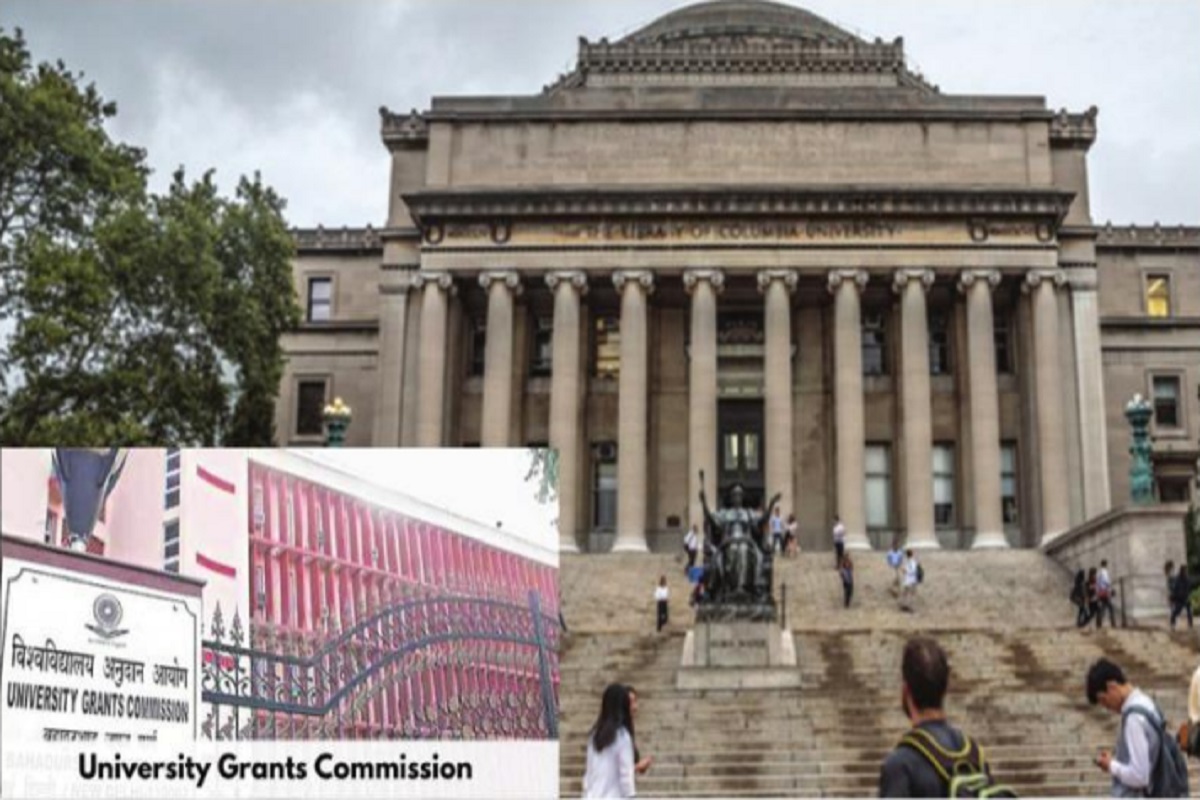The University Grant Commission (UGC) has recently published a draft regulation allowing foreign universities and educational institutions to set up campuses in India.
A foreign university with a global ranking among the top 500 institutions in the world or a respectable reputation in its native country can apply to the UGC to set up a campus in India. The institution will be given full autonomy to administer its fee structure and admission process without any interference from the UGC or the Government of India.
However such educational institutions cannot “offer any such program of study which jeopardizes the national interest of India or the standard of higher education in India.”
The National Education Policy 2020 (NEP 2020) envisioned a similar academic future in the country with its firm advocacy for globalization of higher education in India.
Although the current draft regulation by UGC does not follow the NEP, it keeps the document as a pretext.
The spirit provided by NEP 2020 to make India an educational hub for foreign students and academicians is carried forward by the new draft regulation.
It would be interesting to see if UGC follows the words of NEP in the future and works out a legislative framework to facilitate the entry of foreign academic institutions in the country.
The new initiative is a radical one in terms of its potential to change the higher education scenario in the country, and it will several possibilities to several dimensions of academia.
One such example is the opportunity it brings to the table for the growth of area studies in India. Area studies programmes, sometimes known as regional studies, emphasize the analysis of a particular region characterized either by socio-political and historical phenomena or cultural diversities.
Area studies are typically interdisciplinary in nature, covering a more comprehensive range of issues in a particular geographical location. The programme’s heterogeneous character covers both social sciences and humanities to deal with political science, history, political economy, international relations, strategic studies, language, etc.
Area study has a long history in India. Area study programmes developed in India right after independence under mainstream disciplines like International Studies and Political Science. However, over the years it has created its own identity. Today, several Higher Educational Institutions in the country offer area programmes under their academic curriculum like South Asian Studies, Southeast Asian Studies, African Studies, European Studies, Chinese Studies, American Studies etc. to name a few.
These programmes try to understand a particular geographical area with its political, social and cultural dynamic. Area study programmes in a way try to understand the interactions between local cultures and how they leave an impact on global politics.
Though area studies programmes exist in Indian Universities, they have, from their earliest days, been handicapped by various conceptual fallacies and operational flaws, including the absence of a theory, lack of multidisciplinary perspectives, analyses that are based on macro-level research, scarce fieldwork, deficiencies in language skills, lack of quantitative research projects, event-driven research agendas, a predominance of secondary sources in research, and taught courses which are too broad in their formulation and too narrow in their subject matter. (Sahni, 2009)
However, the new draft regulation by UGC brings a glimmer of hope for area study programmes to develop fully in India.
Through this initiative Indian higher education will attract foreign students as well as academicians to do research in the country.
International Studies and area studies are two major academic disciplines through which students from around the globe will be attracted to pursue their education in India.
Western scholars and academicians are always interested in studying and understanding the non-West, especially the Asian continent. Subjects such as South Asian Studies, Southeast Asian Studies, Chinese studies, Japanese studies etc. can attract the West to establish their institutions in India.
The draft rules provide a good amount of autonomy to foreign institutions in exploring the world’s second largest higher education market. They promise autonomy in all sectors, including academic affairs, governance, admission policy and tuition fees.
Area studies came to the fore with the end of the Second World War as the cold war took shape between the US and the USSR. Political scientists and scholars in the West looked for a way to understand and study the social, cultural, historical, and regional diversities in various parts of the world to cope with international politics’ changing dynamics.
This paved the way for a new field of study under the banner of ‘area studies’ that focused mostly on a region’s contextual historical knowledge.
Private organisations in the US promoted the Area Study programmes to carry forward state propaganda across the world.
The active involvement of US government in academic programmes of area studies made the discipline a problematic one.
Today, area courses provide a unique view of the world and contribute handsomely towards growth of international studies across the globe.
Area programmes have come out of their colonial past and today play an important role in global politics. They are independent or at best complimentary to International Relations.
Area specialists across the globe are working towards a better understanding of global politics ~ giving each geographical location its due recognition.
One of the key benefits of having area programmes in a non-Western country like India is that the courses look beyond the Western gaze and give the non-West its separate identity without any bias.
India can take the lead in this direction through its area programs. At present, several institutions in India are providing area courses but they need proper funding and support from the state to flourish.
UGC’s move therefore could be used as an opportunity as the students of the country could experience area courses of global standard. Although the draft regulation seems to be a perfect opportunity for Indian Higher Education to revolutionise itself, a lot will depend on implementation. The autonomy granted to Foreign Educational institutions should be subject to check and all the activities should be kept transparent.
The area specialists should grab this opportunity and work towards the growth of area programmes in the country. Regionspecific knowledge will help policy makers in India to keep their geostrategic advantage alive.
The challenge for foreign institutions would be to maintain the same global standard of their institutions while operating in India that too with a fee structure that Indian students can afford.
The burden lies with the government and the UGC to provide necessary resources to make the system work. It will be a new experience for Indian students to work with foreign institutions which will give them a unique perspective in academics.
The area specialists in India will be keen to take this platform and carry forward the regionspecific knowledge to a new level to help policy makers understand global politics in a broader sense.












